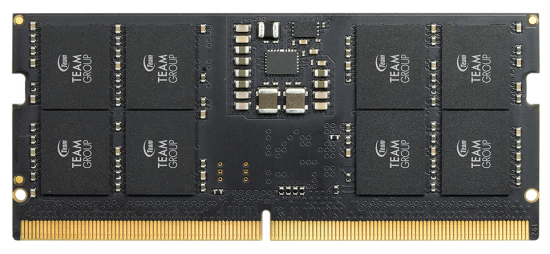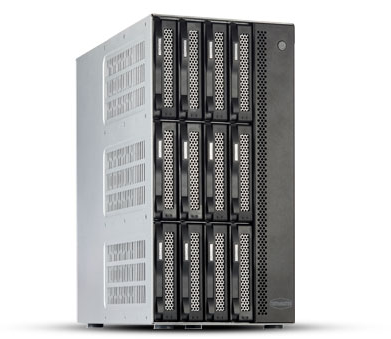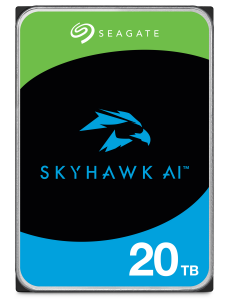- Details
- Flash Memory
SMART Modular Technologies, Inc. (“SMART”), a division of SGH and a global leader in memory solutions, solid-state drive (SSD) and hybrid storage products announces the next generation of its DuraFlash™ ME2 family of SATA SSD products, which includes industry-standard M.2 2242, M.2 2280, mSATA, Slim SATA and 2.5” form factors. These SSDs are available in both industrial and commercial temperature grades and have versions that implement SMART’s SafeDATA™ power-loss, data-protection technology for graceful handling of power fluctuations and sudden power loss events.

The new ME2 SSDs incorporate the latest generation 3D NAND-technology and SMART Modular’s proprietary NVMSentry™ firmware to deliver high performance SSD products with endurance up to one drive writes per day (DWPD) for five years using JEDEC JESD219A enterprise endurance workload. The new NAND device offers better cost per bit over previous 64-layer and 96-layer NAND generations without sacrificing performance and reliability.
Add a comment- Details
- Flash Memory
Samsung Electronics and Western Digital today announced that they have signed a memorandum of understanding (MOU) for a unique collaboration to standardize and drive broad adoption of next-generation data placement, processing and fabrics (D2PF) storage technologies. The companies will initially focus on aligning their efforts and creating a vigorous ecosystem for Zoned Storage solutions. These steps will enable the industry to focus on countless applications that ultimately create greater value for customers.

This marks the first time that both Samsung and Western Digital have come together as technology leaders to create widespread alignment and stimulate awareness for important storage technologies. Focusing on enterprise and cloud applications, the partnership is expected to spur a range of collaborations around technology standardization and software development for D2PF technologies like Zoned Storage. With this collaboration, end-users can have confidence that these emerging storage technologies will have support from multiple device vendors as well as from vertically integrated hardware and software companies.
Add a comment- Details
- Flash Memory
 KIOXIA America, Inc. today announced that it has started sampling new Automotive Universal Flash Storage (UFS) Ver. 3.1 embedded flash memory devices. The new lineup utilizes KIOXIA cutting-edge BiCS FLASH™ 3D flash memory and is available in capacities from 64 gigabytes (GB) to 512GB to support the various requirements of evolving automotive applications that elevate driver experiences.
KIOXIA America, Inc. today announced that it has started sampling new Automotive Universal Flash Storage (UFS) Ver. 3.1 embedded flash memory devices. The new lineup utilizes KIOXIA cutting-edge BiCS FLASH™ 3D flash memory and is available in capacities from 64 gigabytes (GB) to 512GB to support the various requirements of evolving automotive applications that elevate driver experiences.
The storage requirements for automotive applications continue to increase as infotainment systems and ADAS in cars become more sophisticated. UFS is well-suited to support the high-performance and density needs of these applications. The new devices support a wide temperature range (-40°C to +105°C), meet AEC-Q100 Grade2 requirements and offer enhanced reliability capabilities that increasingly complex automotive applications require.
The sequential read and write performance of the Automotive UFS Ver. 3.1 device is significantly improved by approximately 2.2x and 6x respectively, over previous generation devices. These performance gains contribute to faster system startup and OTA (Over-the-Air) updates.
Add a comment- Details
- Other
TEAMGROUP is leading the DDR5 evolution with its leading-edge R&D capabilities. In addition to the overclocking DDR5 gaming memory market, the company has set its sights on the burgeoning laptop market in this era of increasing remote and mobile work. Today TEAMGROUP has released the ELITE SO-DIMM DDR5 Standard Memory, which runs at the all-new ultra-high clock speed of 4,800MHz and comes in both single and dual-channel kits. The ELITE SO-DIMM DDR5 Standard Memory is the perfect choice for laptop users looking for an impressive performance upgrade without hassle.

TEAMGROUP's ELITE SO-DIMM DDR5 Memory operates at the standard DDR5 memory frequency of 4,800MHz, which is up to 50% higher than DDR4's maximum of 3,200MHz. Furthermore, the standard operating voltage of DDR5 is 1.1V, a reduction from the 1.2V in DDR4 that can substantially reduce power consumption and extend standby times of laptops. These major improvements in performance and power efficiency greatly enhance the convenience of laptop use on the go. DDR5 also has twice the burst length of DDR4, significantly increasing the amount of data that can be accessed in a single burst. Furthermore, DDR5 is equipped with unique Same-Bank Refresh command, allowing simultaneous data processing in multiple banks. Upgrading your laptop to DDR5 memory will significantly boost operating efficiency and storage performance, fully meeting your multitasking needs.
Add a comment- Details
- Flash Memory
As industries compete to capitalize on the abundance of data generated by intelligent, connected devices, implementation of an intelligent data strategy has become even more critical. Edge computing has played an instrumental role to address this demand, but the edge itself has continued to evolve with the ever-growing need for even more demanding, real-time computing. Rugged edge computing enables applications that require real-time, low latency data processing and storage to function reliably in volatile environments that are not friendly to regular systems.
![]()
Trends and technologies such as Industry 4.0, AIoT, and 5G are driving the need for improved intelligence at the rugged edge. Businesses and organizations want more computing power at the edge because of the benefits it provides to their operations. NVM Express (NVMe) is an essential enabling technology for rugged edge computing, reducing latency and accelerating data processing to the point where connected devices can operate anywhere to perform machine learning, artificial intelligence, and inference computing. Real-time data access and analytics are turning rugged edge computing into a competitive necessity across all sectors and industries.
Add a comment- Details
- Flash Memory
Swissbit has expanded its product range with the launch of the M.2 SATA SSD X-78m2. The new series is designed for especially write-intensive applications, is ideal for audio, video, and data recording, as well as serving as a boot medium, and achieves 2.5 times the endurance of previous generations. At the same time, it meets the most stringent requirements for reliability, temperature stability, and longevity. This makes the SSD suitable for any application that requires high endurance without compromising on data retention or temperature profiles.

Typical target applications include industrial PCs, point-of-sale (PoS) systems, embedded and surveillance systems, as well as mission-critical applications in the transportation, medical, networking, and communications sectors. The X-78m2 series is based on the compact M.2 2242 form factor and is immediately available with storage capacities ranging from 40 GB to 320 GB.
Add a comment- Details
- Flash Memory
ADATA Technology, a leading manufacturer of high-performance DRAM modules, NAND Flash products, and mobile accessories has today launched new industrial-grade Registered DIMM (R-DIMM) DDR5 memory modules. This completes a full suite of industrial-grade DDR5 including U-DIMM, SO-DIMM and now R-DIMM modules designed for the latest Intel 12th Generation processors, and future DDR5 platforms.

READY FOR INDUSTRIAL APPLICATIONS
ADATA industrial-grade R-DIMM DDR5 memory modules are suitable for a wide range of applications, including 5G backhaul equipment, AIoT, High-Performance Computing, Server, Data Center, Edge Computing, Networking, Surveillance and more. DDR5 is expected to account for 90% of the global memory market by 2026, and ADATA’s DDR5 memory is ready to support the growing demand for reliable, high bandwidth memory.
- Details
- Network Storage
TerraMaster, a professional brand that specializes in providing innovative storage products for home, businesses and enterprises, introduces the T12-423 12-bay professional compact NAS. Designed for small-sized and medium-sized businesses, the T12-423 comes equipped with a more powerful and efficient Intel Celeron quad-core processor for high-speed transmission and virtualization applications.

The TerraMaster T12-423 has 12 bays that support 3.5” HDDs and 2.5” SSD/HDDs, up to 240TB of internal raw storage capacity. It has two M.2 slots for NVMe SSDs for SSD caching. This TNAS comes with 8GB DDR4 SODIMM memory, upgradeable up to 32GB (2x 16GB) with its two SODIMM slots. It is also equipped with two 2.5GbE NICs with Link Aggregation support.
Add a comment- Details
- Hard Disks
 AI-enabled video imaging and analytics systems require support for heavy workloads that process and analyze multiple streams and thousands of hours of video data. Today during the ISC West trade show in Las Vegas, Nev., Seagate Technology Holdings plc, a world leader in mass-data storage infrastructure solutions, launched the new SkyHawk™ AI 20TB hard disk drive (HDD). The mass-capacity HDD adds to the company’s leading line of video imaging and analytics (VIA) devices.
AI-enabled video imaging and analytics systems require support for heavy workloads that process and analyze multiple streams and thousands of hours of video data. Today during the ISC West trade show in Las Vegas, Nev., Seagate Technology Holdings plc, a world leader in mass-data storage infrastructure solutions, launched the new SkyHawk™ AI 20TB hard disk drive (HDD). The mass-capacity HDD adds to the company’s leading line of video imaging and analytics (VIA) devices.
Purposely designed for network video recorders (NVRs) enabled with AI for edge security applications, Seagate’s SkyHawk AI 20TB HDD intelligently adapts to the scale of the users’ AI environment, supporting up to 64 HD video streams and 32 AI streams. With this capability to support scalable AI workloads, SkyHawk AI meets the growing needs of advanced VIA systems to analyze and record video footage while simultaneously supporting GPU analytics.
Built with ImagePerfect™ AI firmware, the drive delivers zero dropped frames while supporting heavier workloads. An enterprise-class drive, the new SkyHawk AI 20TB features high reliability with two million hours mean time between failures (MTBF) and a 550TB/year workload rate, supporting over three times the workload of standard VIA drives.
Add a comment- Details
- Flash Memory
 KIOXIA America, Inc., today announced that it is sampling its 2nd generation PCIe® 5.0 SSD for enterprise and data center customers. After being the first vendor to offer a drive using the PCIe 5.0 interface, KIOXIA has now introduced the new CD8 Series data center NVMe™ SSD family. CD8 SSDs double the bandwidth per lane over PCIe 4.0 SSDs from 16 gigatransfers per second (GT/s) to 32GT/s and are optimized for hyperscale data center and enterprise server-attached workloads.
KIOXIA America, Inc., today announced that it is sampling its 2nd generation PCIe® 5.0 SSD for enterprise and data center customers. After being the first vendor to offer a drive using the PCIe 5.0 interface, KIOXIA has now introduced the new CD8 Series data center NVMe™ SSD family. CD8 SSDs double the bandwidth per lane over PCIe 4.0 SSDs from 16 gigatransfers per second (GT/s) to 32GT/s and are optimized for hyperscale data center and enterprise server-attached workloads.
“Today, PCIe 4.0 SSDs are considered at the forefront in terms of delivering the highest levels of drive performance,” commented Greg Wong, founder and principal analyst, Forward Insights. “Next generation PCIe 5.0 SSDs provide twice the level of performance, and will continue to propel the PCIe/NVMe SSD market - which is expected to grow at a CAGR of over 20% out to 2026.”
Based on the KIOXIA 5th generation BiCS FLASH™ TLC 3D flash memory technology, the CD8 Series’ 7th generation enterprise SSD design utilizes a proprietary KIOXIA controller and firmware in a 2.5-inch2, 15mm Z-height form factor. The new drives are designed to the PCIe 5.0®, Open Compute Project (OCP) Datacenter NVMe SSD and NVMe 1.4 specifications, and are well-suited to applications and use cases that include high-performance computing, artificial intelligence, caching layer, content streaming, and financial trading and analysis.
Add a comment
